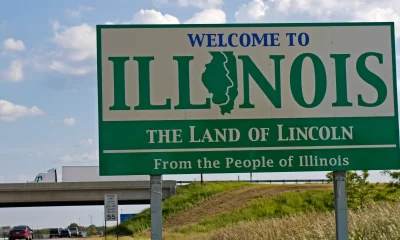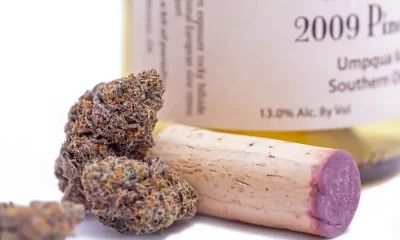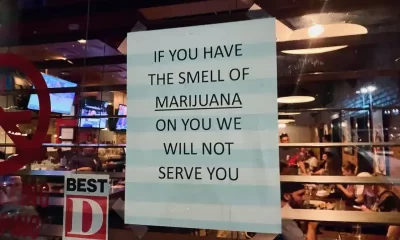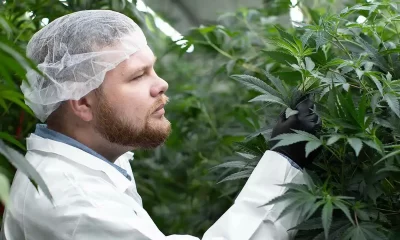Government
Majority Of Texans Support Legalizing Recreational Weed, But They Support This Even More
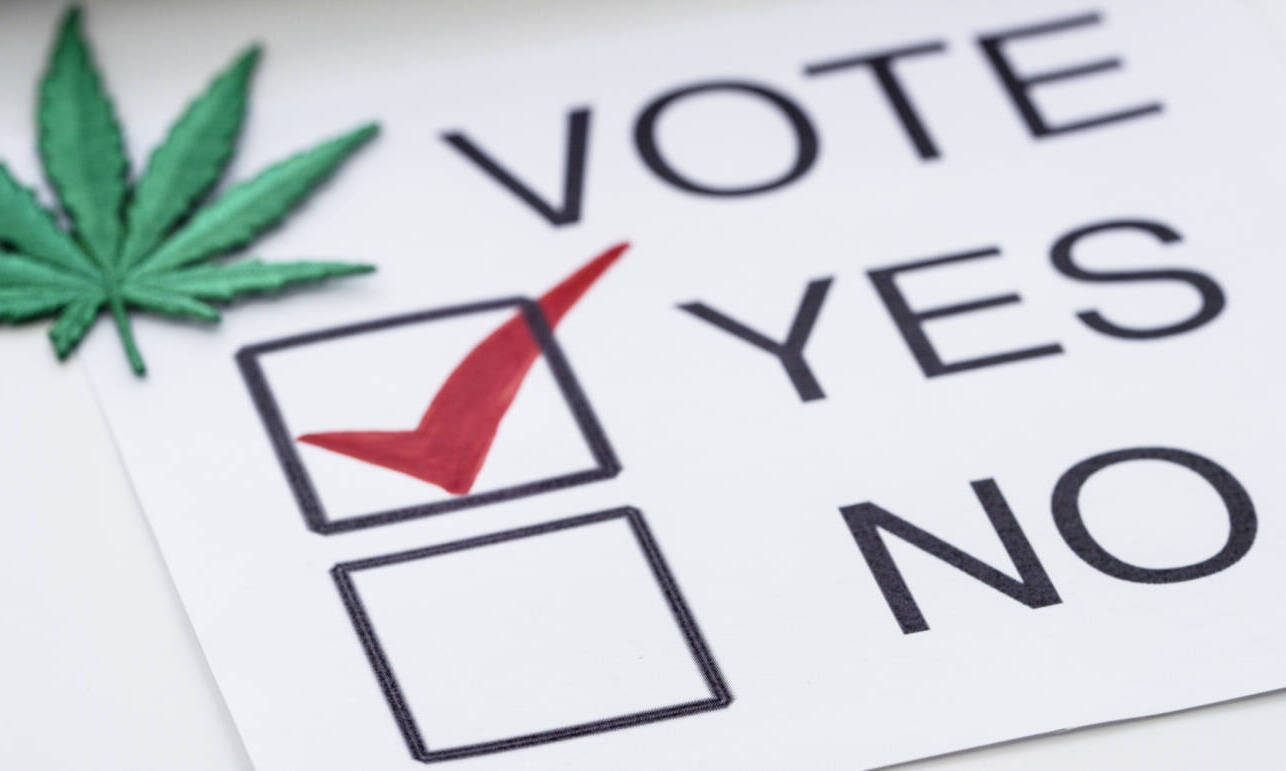
In Texas, possession of up to 2 ounces is still considered a Class B misdemeanor, which is punishable by up to 180 days in jail and a fine of up to $2,000.
The majority of Texans support legalization of adult-use marijuana, according to a new Dallas Morning News-University of Texas at Tyler poll. Of those surveyed, 55% said they either support or strongly support legalization, reported Dallas Morning News.
What about medical marijuana? You guessed it, support is even broader with some 72% of those questioned confirming they support or strongly support legalization of the plant for medicinal purposes. Wait, didn’t The Lone Star State already legalize medical cannabis use?
Current Cannabis Laws In Texas
Well, though medical cannabis is somewhat legal in the state, it is strictly regulated. Only patients with conditions such as cancer, autism, epilepsy, post-traumatic stress disorder (PTSD), and multiple sclerosis qualify to use medical marijuana. What’s more, in 2021, there were some 7,000 MMJ patients in the state registry and only 348 doctors that can prescribe medical cannabis.

RELATED: Weed Prohibition Still Official Stance Of Texas GOP As Marijuana Popularity Grows Among Residents
Texas first legalized medical marijuana some seven years ago, under the Compassionate Use Act, which allowed patients with intractable epilepsy to acquire and use cannabis oil with less than 0.5%. The program has been expanded since then, with more qualifying conditions, and allowing 1% THC in MMJ products.
Even though previous surveys showed similar results, Governor Greg Abbott’s stance has not moved much. In January, Abbott agreed to reduce criminal penalty for marijuana possession to a Class C misdemeanor, but not legalize. In Texas, possession of up to 2 ounces is still considered a Class B misdemeanor, which is punishable by up to 180 days in jail and a fine of up to $2,000. More than 2 ounces could result in up to a year in jail, while more than 4 ounces is considered a felony.
Recent Poll Key Takeaways
The poll used a statewide random sample of 1,384 registered voters, and was conducted between Aug. 1 and 7.
When it comes to support across political party lines, Democrats lead the way in supporting recreational cannabis legalization with 38% strongly backing legalization and 27% supporting it, compared to 26% and 17% of Republicans, respectively.
The poll also revealed that 12% of Democrats and 32% of Republicans are strongly against the legalization of recreational cannabis use.
“If they legalized it, you’re gonna have a dispensary pop up on every corner in our town, and that’s not really something that I look forward to seeing every day,” said Republican Edwin Kirby, who lives in Tyler.“With the drug problems we have now with young kids, that’s just gonna add fuel to the fire.”
Laurie Richardson, a Democrat in Frisco who responded to the Morning News-UT-Tyler poll, on the other hand, recognizes the medical benefits of marijuana. And even though she’s never consumed, she is aware that cannabis prohibition doesn’t work.
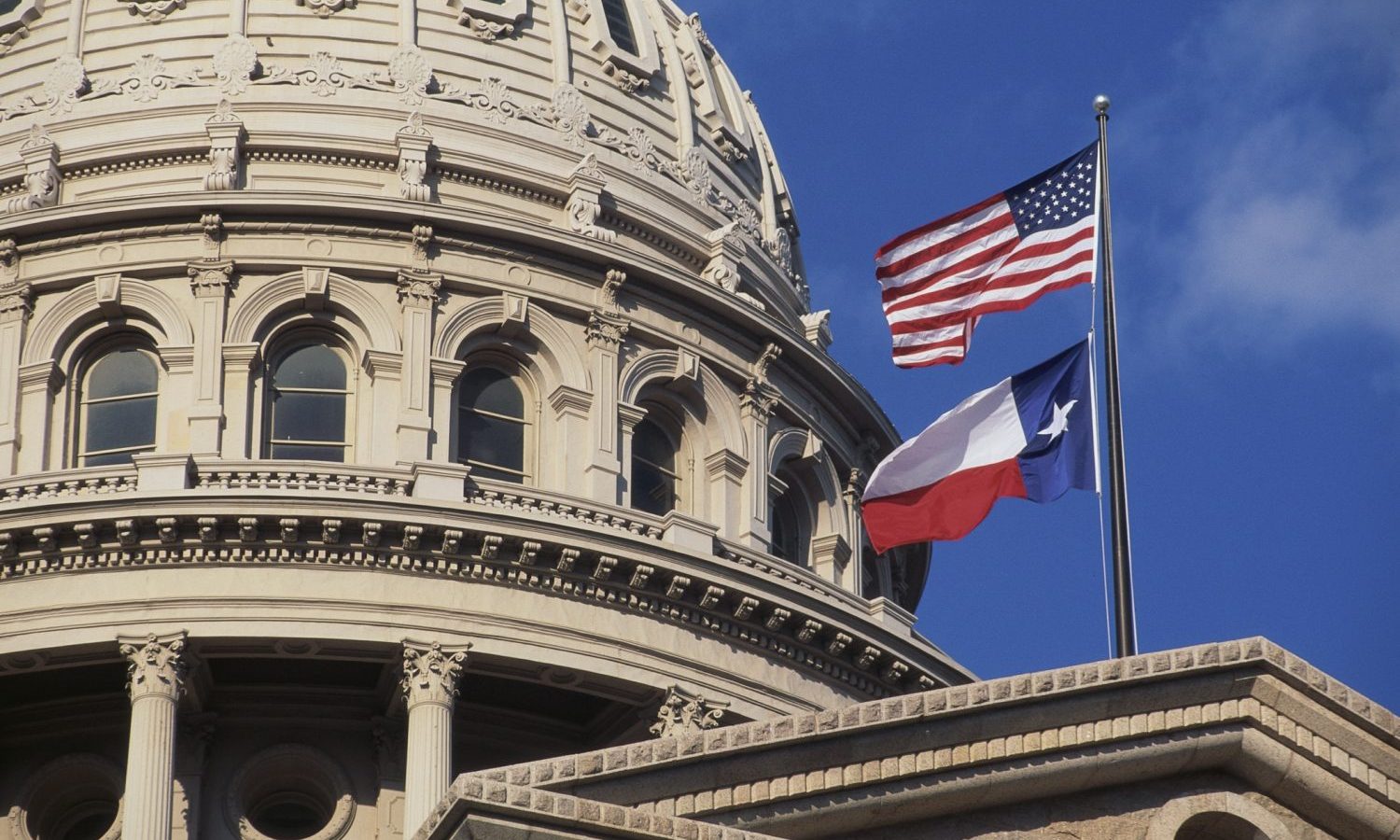
Photo by Bo Zaunders/Getty Images
“We tried to prohibit alcohol, and then you have all these people trying to create their own alcohol and people getting alcohol poisoning — I feel the same way with marijuana,” Richardson said. “I just don’t think you’re gonna be able to stop people from accessing it if they want it. I think it needs to be treated almost like alcohol.”
When it comes to medical marijuana, the difference is not as huge. Some 49% of Democrats and 35% of Republicans strongly back legalization, which compares to 8% of Democrats and 13% of Republicans that are against it.
Business
New Mexico cannabis operator fined, loses license for alleged BioTrack fraud

New Mexico regulators fined a cannabis operator nearly $300,000 and revoked its license after the company allegedly created fake reports in the state’s traceability software.
The New Mexico Cannabis Control Division (CCD) accused marijuana manufacturer and retailer Golden Roots of 11 violations, according to Albuquerque Business First.
Golden Roots operates the The Cannabis Revolution Dispensary.
The majority of the violations are related to the Albuquerque company’s improper use of BioTrack, which has been New Mexico’s track-and-trace vendor since 2015.
The CCD alleges Golden Roots reported marijuana production only two months after it had received its vertically integrated license, according to Albuquerque Business First.
Because cannabis takes longer than two months to be cultivated, the CCD was suspicious of the report.
After inspecting the company’s premises, the CCD alleged Golden Roots reported cultivation, transportation and sales in BioTrack but wasn’t able to provide officers who inspected the site evidence that the operator was cultivating cannabis.
In April, the CCD revoked Golden Roots’ license and issued a $10,000 fine, according to the news outlet.
The company requested a hearing, which the regulator scheduled for Sept. 1.
At the hearing, the CCD testified that the company’s dried-cannabis weights in BioTrack were suspicious because they didn’t seem to accurately reflect how much weight marijuana loses as it dries.
Company employees also poorly accounted for why they were making adjustments in the system of up to 24 pounds of cannabis, making comments such as “bad” or “mistake” in the software, Albuquerque Business First reported.
Golden Roots was fined $298,972.05 – the amount regulators allege the company made selling products that weren’t properly accounted for in BioTrack.
The CCD has been cracking down on cannabis operators accused of selling products procured from out-of-state or not grown legally:
- Regulators alleged in August that Albuquerque dispensary Sawmill Sweet Leaf sold out-of-state products and didn’t have a license for extraction.
- Paradise Exotics Distro lost its license in July after regulators alleged the company sold products made in California.
Golden Roots was the first alleged rulebreaker in New Mexico to be asked to pay a large fine.
Source: https://mjbizdaily.com/new-mexico-cannabis-operator-fined-loses-license-for-alleged-biotrack-fraud/
Business
Marijuana companies suing US attorney general in federal prohibition challenge

Four marijuana companies, including a multistate operator, have filed a lawsuit against U.S. Attorney General Merrick Garland in which they allege the federal MJ prohibition under the Controlled Substances Act is no longer constitutional.
According to the complaint, filed Thursday in U.S. District Court in Massachusetts, retailer Canna Provisions, Treevit delivery service CEO Gyasi Sellers, cultivator Wiseacre Farm and MSO Verano Holdings Corp. are all harmed by “the federal government’s unconstitutional ban on cultivating, manufacturing, distributing, or possessing intrastate marijuana.”
Verano is headquartered in Chicago but has operations in Massachusetts; the other three operators are based in Massachusetts.
The lawsuit seeks a ruling that the “Controlled Substances Act is unconstitutional as applied to the intrastate cultivation, manufacture, possession, and distribution of marijuana pursuant to state law.”
The companies want the case to go before the U.S. Supreme Court.
They hired prominent law firm Boies Schiller Flexner to represent them.
The New York-based firm’s principal is David Boies, whose former clients include Microsoft, former presidential candidate Al Gore and Elizabeth Holmes’ disgraced startup Theranos.
Similar challenges to the federal Controlled Substances Act (CSA) have failed.
One such challenge led to a landmark Supreme Court decision in 2005.
In Gonzalez vs. Raich, the highest court in the United States ruled in a 6-3 decision that the commerce clause of the U.S. Constitution gave Congress the power to outlaw marijuana federally, even though state laws allow the cultivation and sale of cannabis.
In the 18 years since that ruling, 23 states and the District of Columbia have legalized adult-use marijuana and the federal government has allowed a multibillion-dollar cannabis industry to thrive.
Since both Congress and the U.S. Department of Justice, currently headed by Garland, have declined to intervene in state-licensed marijuana markets, the key facts that led to the Supreme Court’s 2005 ruling “no longer apply,” Boies said in a statement Thursday.
“The Supreme Court has since made clear that the federal government lacks the authority to regulate purely intrastate commerce,” Boies said.
“Moreover, the facts on which those precedents are based are no longer true.”
Verano President Darren Weiss said in a statement the company is “prepared to bring this case all the way to the Supreme Court in order to align federal law with how Congress has acted for years.”
While the Biden administration’s push to reschedule marijuana would help solve marijuana operators’ federal tax woes, neither rescheduling nor modest Congressional reforms such as the SAFER Banking Act “solve the fundamental issue,” Weiss added.
“The application of the CSA to lawful state-run cannabis business is an unconstitutional overreach on state sovereignty that has led to decades of harm, failed businesses, lost jobs, and unsafe working conditions.”
Business
Alabama to make another attempt Dec. 1 to award medical cannabis licenses

Alabama regulators are targeting Dec. 1 to award the first batch of medical cannabis business licenses after the agency’s first two attempts were scrapped because of scoring errors and litigation.
The first licenses will be awarded to individual cultivators, delivery providers, processors, dispensaries and state testing labs, according to the Alabama Medical Cannabis Commission (AMCC).
Then, on Dec. 12, the AMCC will award licenses for vertically integrated operations, a designation set primarily for multistate operators.
Licenses are expected to be handed out 28 days after they have been awarded, so MMJ production could begin in early January, according to the Alabama Daily News.
That means MMJ products could be available for patients around early March, an AMCC spokesperson told the media outlet.
Regulators initially awarded 21 business licenses in June, only to void them after applicants alleged inconsistencies with how the applications were scored.
Then, in August, the state awarded 24 different licenses – 19 went to June recipients – only to reverse themselves again and scratch those licenses after spurned applicants filed lawsuits.
A state judge dismissed a lawsuit filed by Chicago-based MSO Verano Holdings Corp., but another lawsuit is pending.
Source: https://mjbizdaily.com/alabama-plans-to-award-medical-cannabis-licenses-dec-1/
-

 Business2 years ago
Business2 years agoPot Odor Does Not Justify Probable Cause for Vehicle Searches, Minnesota Court Affirms
-

 Business2 years ago
Business2 years agoNew Mexico cannabis operator fined, loses license for alleged BioTrack fraud
-

 Business2 years ago
Business2 years agoAlabama to make another attempt Dec. 1 to award medical cannabis licenses
-

 Business2 years ago
Business2 years agoWashington State Pays Out $9.4 Million in Refunds Relating to Drug Convictions
-

 Business2 years ago
Business2 years agoMarijuana companies suing US attorney general in federal prohibition challenge
-

 Business2 years ago
Business2 years agoLegal Marijuana Handed A Nothing Burger From NY State
-

 Business2 years ago
Business2 years agoCan Cannabis Help Seasonal Depression
-

 Blogs2 years ago
Blogs2 years agoCannabis Art Is Flourishing On Etsy


